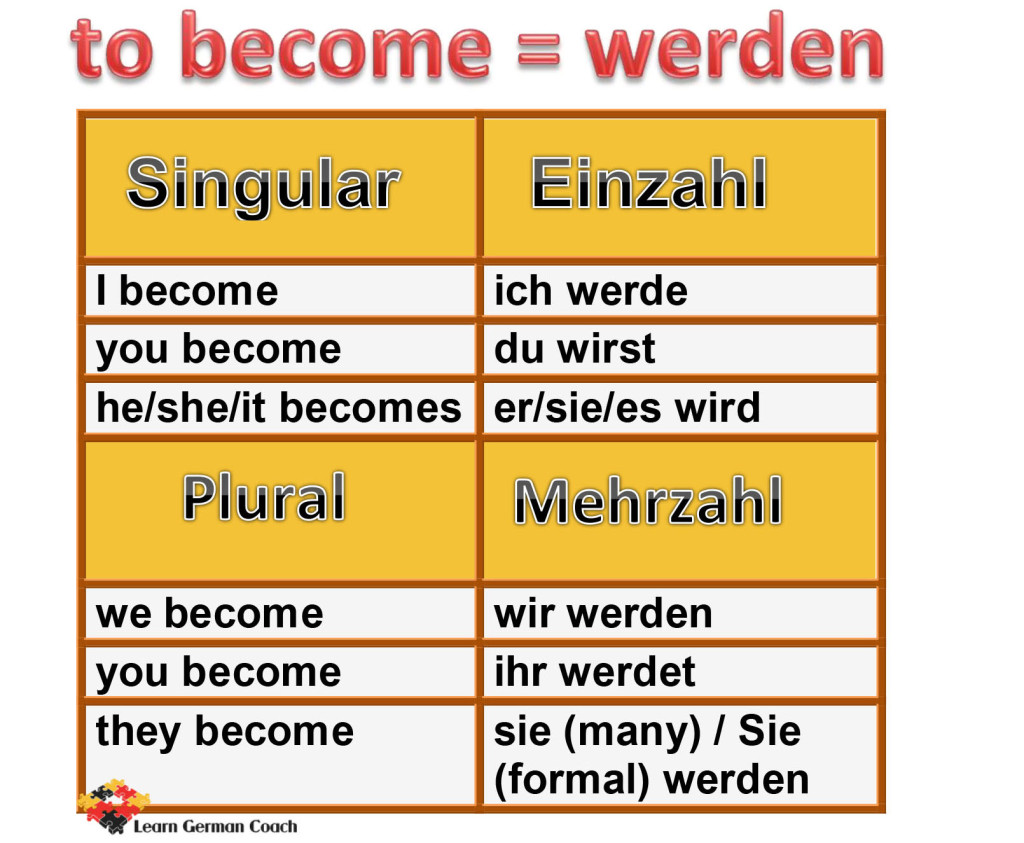Conjugations
When you use a verb, it must be conjugated (changed), to fit the audience. For example, in English, you wouldn't say: "I is", you would say: "I am".In German, specific conjugations go with specific nouns.
I = Ich
You = Du
He/she/it = Er/sie/es
We = Wir
You all = Ihr
You(Proper) = Sie
Every pronoun has a specific pattern for conjugating verbs.
| Ich | Du | Er/sie/es | Wir | Ihr | Sie |
|---|---|---|---|---|---|
To conjugate the verb, you take the root of the word and add the ending that applies.
Example: To sing = singen
I am singing. You are singing.
Ich singe. Du singst.
The root of singen, is sing. You would add e on the end of sing for ich, and st on the end of sing for du.

The conjugation for the word "sein"(to be) is the only verb that doesn't follow the rule.
| Ich | Du | Er/sie/es | Wir | Ihr | Sie |
|---|---|---|---|---|---|